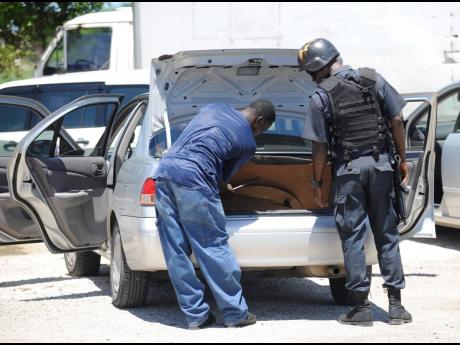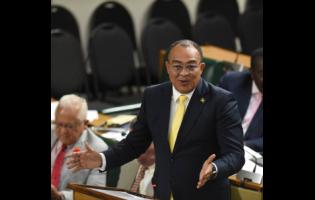Lawyer wants stop-and-search policy reviewed
Attorney John Clarke, a prominent advocate for civil liberties, is calling for a critical reassessment of stop-and-search operations carried out by the security forces, arguing that these measures are both ineffective and potentially unconstitutional.
Clarke's concerns come against a backdrop of several police officers, in recent times, being critically injured by vehicles during routine stop-and-search operations. Clarke told THE WEEKEND STAR that according to the Constitution "no one should be subjected to arbitrary search."
"The new Road Traffic Act allows officers to request vehicle documents, but it does not explicitly permit random vehicle searches. Any attempt to do so would be unconstitutional," he said. Clarke outlined the difference between lawful and unlawful searches.
"Police can search vehicles if they have specific, credible information indicating criminal activity. However, conducting random searches without reasonable suspicion is illegal," he said. "Such practices not only violate constitutional rights but also have minimal impact on actual crime prevention."
The issue is compounded by the lack of transparency in these operations. Clarke said that he has requested data from the Jamaica Constabulary Force regarding the outcomes of these random searches, but the statistics were not provided. "Without this information, it's impossible to evaluate whether these searches are effective or merely a costly exercise," he said.
The debate over random vehicle searches is not unique to Jamaica. International research highlights similar concerns. In the United Kingdom, extensive studies have shown that, despite hundreds of thousands of vehicle stops, only a small percentage led to meaningful results in crime prevention. Similar findings have emerged from Australia and Canada, where random vehicle searches were deemed inefficient. Clarke argued that the resources spent on random searches could be better utilised.
"Given the tragic incidents involving officers and the minimal impact of these searches on crime rates, we must question if deploying dozens of officers daily for random checks is justified," he said. "It may be more effective to focus resources on targeted investigations or community policing."
The financial cost of random searches also adds to the urgency of reform. Clarke recounted a case in which a citizen, Adrian Christie, was awarded $1 million in compensation after an unlawful search.
"Such cases illustrate the financial burden on taxpayers and the need for more effective policing methods," Clarke added. "These resources could be better spent elsewhere."






































